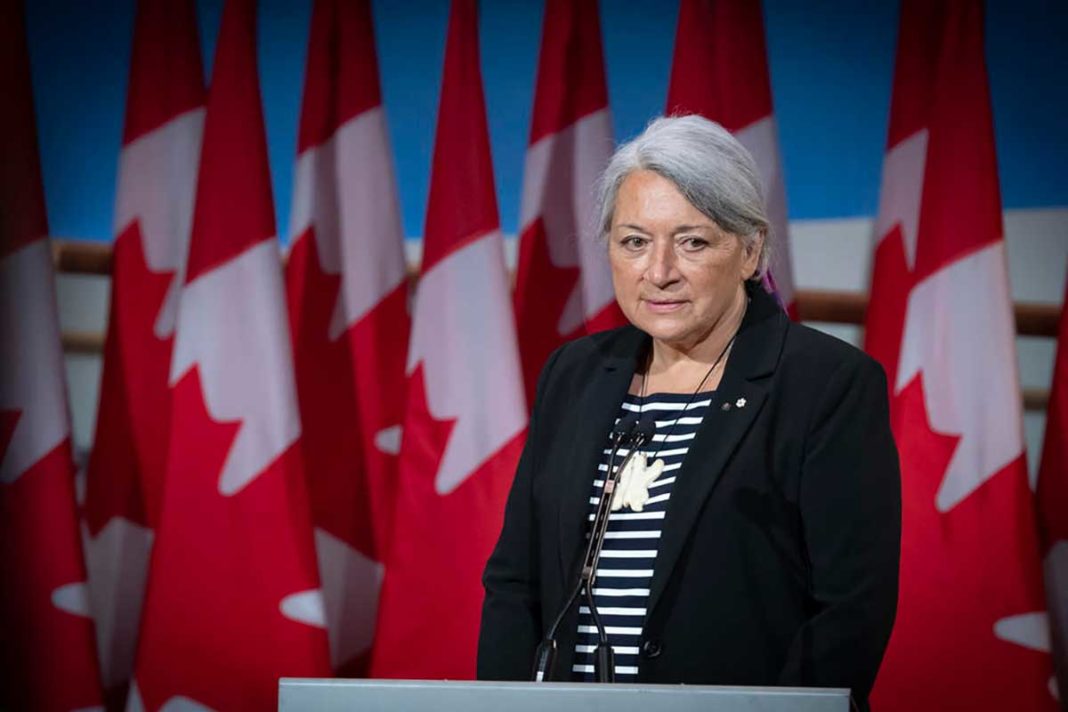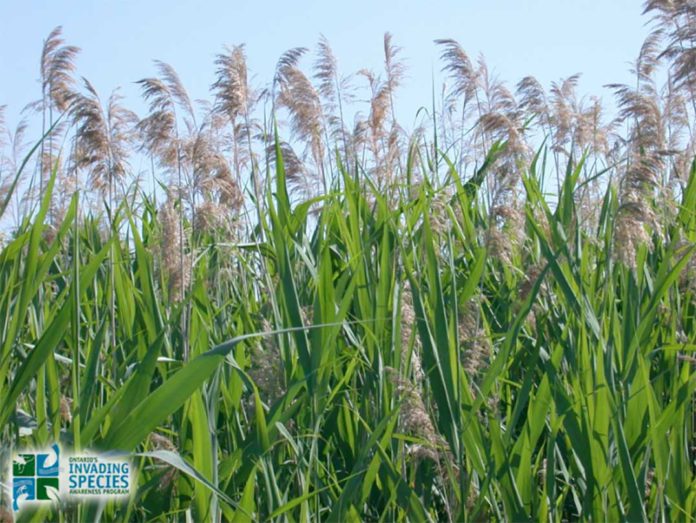OTTAWA – Prime Minister Justin Trudeau has chosen Inuk leader and former ambassador Mary Simon to be Canada’s next governor general. Ms. Simon will be the first Indigenous person to be appointed to the role marking a historic occasion in the midst of a national reckoning over the nation’s past.
During a news conference near Parliament Hill, Prime Minister Trudeau announced that Queen Elizabeth II, Canada’s sovereign, has accepted his recommendation to appoint Ms. Simon as the the nation’s 30th governor general.
“I can confidently say that my appointment is an historic and inspirational moment for Canada and an important step forward on the long path towards reconciliation,” said Ms. Simon, broadcast from the Canadian Museum of History in Gatineau, Quebec. “Indeed, my appointment comes at an especially reflective and dynamic time in our shared history.”
Ms. Simon is an Inuk from Kuujjuaq, a village on the coast of Ungava Bay in northeastern Quebec. Her mother was a local Inuk woman and her father a fur trader at a Hudson’s Bay Company outpost.
“That’s great,” said UCCMM Tribal Chair Patsy Corbiere upon hearing the news of Ms. Simon’s appointment. She described Ms. Simon as “very smart, a very educated person.” The appointment, she notes, is more than just a token, but rather a sign of substantive change. “She will foster change,” said Ogimaa-kwe Corbiere. “It is great to see a person of her stature in a leadership role.”
Ms. Simon is bilingual, in English and Inuktitut, but has yet to master French. She pointed to the curriculum at the federal Fort Chimo day school she attended in the Nunavik region as one reason for her lack of fluency in French, saying she never had the opportunity to learn Canada’s other official language while at that institution. The school has been the subject of lawsuits over the mistreatment of students by administrators.
“I was denied the chance to learn French during my stay in the federal government day schools,” she said during the press conference, but promised to learn the language while on the job.
In a signal note, Ms. Simon’s opening remarks were in Inuktitut.
“For a long time there have been barriers in place for First Nation, Inuit and Métis in this country, whether it’s because of systemic racism, whether it’s the fact that Indigenous languages are not official languages and therefore First Nation, Inuit and Metis are passed over because they might not have bilingualism in English and French,” commented Natan Obed, head of the Inuit Tapiriit Kanatami who was a member of the advisory board that helped select potential candidates for the post.
Ms. Simon went on to note that she grew up experiencing a “very traditional lifestyle,” but added that she also learned about the “non-Native world” from her father, who was a white man originally from Manitoba.
“Combined, these experiences allow me to be a bridge between the different lived realities that together make up the tapestry of Canada,” Ms. Simon said, going on to note that she “can relate to all people no matter where they live, what they hope for or what they need to overcome.”
Ms. Simon is ascending to Canada’s highest post after an accomplished and varied career, having worked as an announcer and producer with CBC North before embarking on a long career focused on advocating for Indigenous rights.
Among her many accomplishments was helping to negotiate the James Bay and Northern Quebec Agreement in 1975. That landmark deal was between the Cree and Inuit in Quebec’s north, the provincial government and Hydro-Québec is hailed as the first modern treaty, not only cementing Indigenous hunting, trapping and fishing rights, but also laying the groundwork for that province becoming an electricity powerhouse.
Ms. Simon went on to be elected president of Makivik Corp. in 1982, which was the organization created to administer the funds the Inuit received from development taking place on their lands. That organization manages tens of millions of dollars’ worth of investments, that include an ownership stake in major Arctic air carrier Canadian North.
In 1986, Ms. Simon took up the lead of the Inuit Circumpolar Conference, representing the Inuit in all the Arctic countries, where she championed two priorities for Northern Indigenous people: protecting their way of life from environmental damage and pushing for responsible economic development on their traditional territory.
In 2002, then prime minister Jean Chrétien named Ms. Simon Canada’s first Arctic ambassador, where she worked closely with other Arctic countries to bolster co-operation. She then went on to serve as Canada’s ambassador to Denmark.
Ms. Simon served two terms as the president of the Inuit Tapiriit Kanatami (ITK), a national Indigenous organization working to advance Inuit rights, where she fought for more resources for young people in the North.
She accepted former prime minister Stephen Harper’s apology for the past treatment of Indigenous peoples in the residential school system.
“Today after 154 years our country takes a historic step. I cannot think of a better person to meet the moment,” said Prime Minister Trudeau in making the announcement of Ms. Simon’s impending appointment. “It is only by reaching out to those around us, it is only by building bridges between people in the north and south, just like in the east and west that we can truly move forward.”





